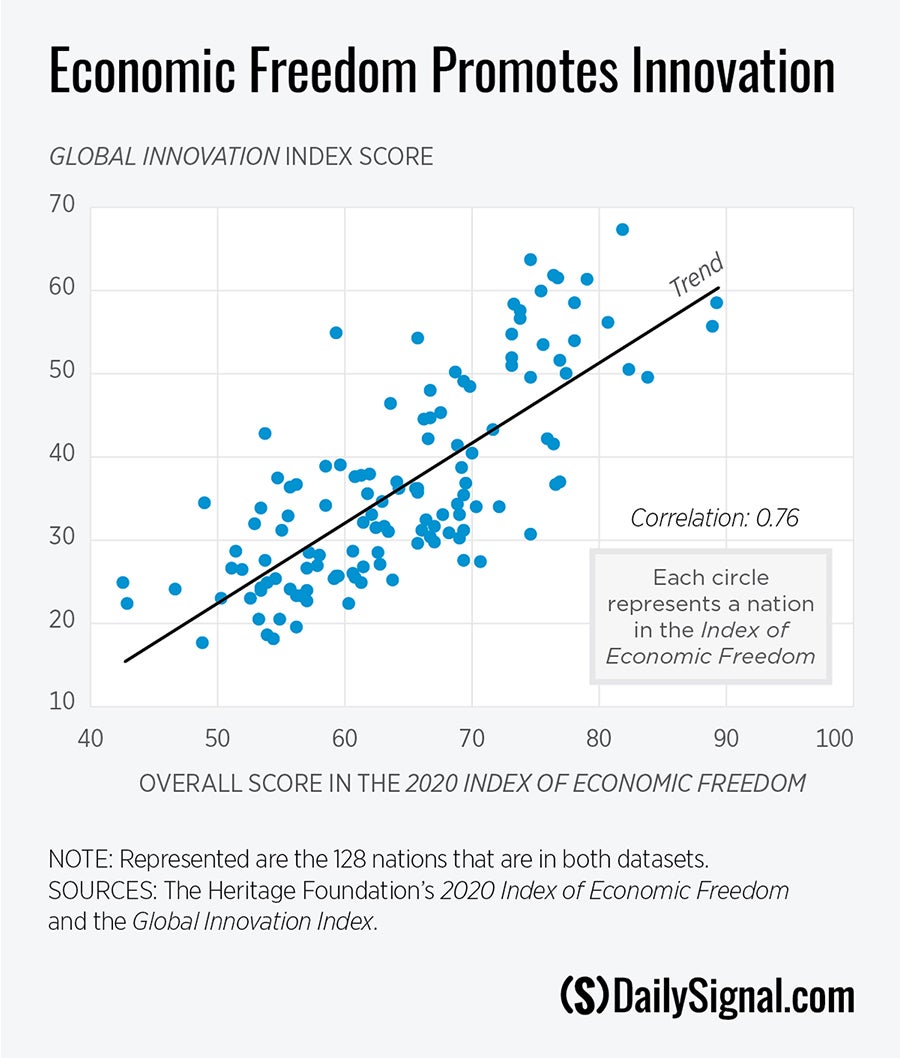Elizabeth Warren and Fellow Leftists Demand Government “March-In” on Critical Cancer Drug
This week, Senator Elizabeth Warren (D – Massachusetts) and a group of fellow liberals submitted a letter to the United States Department of Health and Human Services (HHS) demanding that the federal government employ so-called “march-in” rights under the Bayh-Dole Act of 1980 to disregard private patent rights on the critical cancer drug Xtandi.
Here’s why that’s a terrible and potentially deadly idea that the HHS, other lawmakers and the American public must oppose.
Simply put, disregarding patent protections for pharmaceutical innovators will bring innovation to a halt and deprive Americans of lifesaving drugs. America currently produces two-thirds of all new drugs worldwide, and that’s because our nation honors and protects patent rights, it doesn’t violate them.
It’s especially outrageous that Senator Warren and her cohorts seek to leverage the Bayh-Dole Act of 1980 to facilitate their scheme. The Bayh-Dole Act was passed in order to extend patent rights to universities and nonprofit research entities whose research was assisted by federal funds, not weaken them. Prior to Bayh-Dole, very few innovations partially funded by federal dollars were ever commercially pursued – only 390 in the year prior to its passage. Four decades later, however, that number approaches 7,500, with over 420,000 inventions and 13,000 new startup enterprises formed.
That explains why The Economist magazine labeled Bayh-Dole the most important bill of the past half-century:
Possibly the most inspired piece of legislation to be enacted in America over the past half-century was the Bayh-Dole Act of 1980. Together with amendments in 1984 and augmentation in 1986, this unlocked all the inventions and discoveries that had been made in laboratories throughout the United States with taxpayers’ money.”
Alarmingly, however, this groups seeks to undermine patent rights for Xtandi by exploiting a “march-in” provision within Bayh-Dole to empower the federal government to commandeer new drugs and license the patents on inventions partially funded by federal dollars to third parties. According to their flawed logic, the market prices of some drugs render them insufficiently available to the general public, and on that basis they encourage federal bureaucracies to forcibly license those drugs’ patent rights to other third parties for manufacture and sale. That would constitute a frontal assault against private pharmaceutical innovators, disregarding their patent rights and the enormous investments they’ve made over years and decades to conceive, perfect, produce and distribute those drugs. It would also contravene the statutory terms of Bayh-Dole itself.
Indeed, Senators Birch Bayh and Bob Dole themselves confirmed that the law bearing their names did not intend or allow cost to become a mechanism for imposition of de facto drug price controls:
Bayh-Dole did not intend that government set prices on resulting products. The law makes no reference to a reasonable price that should be dictated by the government. This omission was intentional; the primary purpose of the act was to entice the private sector to seek public-private research collaboration rather than focusing on its own proprietary research.”
That’s precisely why the National Institutes of Health (NIH) has rejected every one of the “march-in” petitions that it has received during the Bayh-Dole Act’s existence. It has consistently and correctly ruled that attempts to leverage price allegations to justify march-in would undermine the very goal of the act and ultimately harm American consumers.
People like Sen. Warren and her cohorts nevertheless claim that federal funding toward pharmaceutical research justify government march-in intrusion, falsely asserting that pharmaceutical innovators somehow enjoy a free ride at taxpayer expense. That’s false.
Private funding for research and development actually dwarfs public funding. According to the NIH itself, private sector R&D far exceeds NIH funding throughout recent years and decades. In 2018, as another example, the NIH spent $3 billion on clinical trials involving new or existing drugs, compared to $102 billion in R&D by the U.S. biopharmaceutical industry. Indeed, the pharmaceutical industry stands as the single largest source of business R&D funding in the U.S., accounting for 17.6% of all U.S. business R&D. The next-closest counterpart is the software sector at 9.1%, with the automobile industry at 5.9% and the aerospace industry at 4.1%.
Senator Warren and her cosigners also allege that inflation somehow justifies their demand, but the fact is that drug prices significantly trail overall inflation.
Accordingly, the facts show that strong U.S. patent protections and the Bayh-Dole law promote pharmaceutical R&D investment, and there’s simply no legal or logical basis for advocating march-in regarding Xtandi. Pharmaceutical innovation demands billions of dollars in sunk costs of investment, not to mention potential product liability lawsuits for any errors. Strong patent protections, which Bayh-Dole codifies, help ensure that those costs and risks will be fairly and sufficiently rewarded. They provide innovators and investors the incentives to create pharmaceuticals that save millions and even billions of lives worldwide.
The demand by Senators Warren and her cosigners would dangerously jeopardize that.


.jpg?width=2400&name=PhRMA_Catalyst_NIH_In-Blog_Graph%20(3).jpg)


 CFIF Freedom Line Blog RSS Feed
CFIF Freedom Line Blog RSS Feed CFIF on Twitter
CFIF on Twitter CFIF on YouTube
CFIF on YouTube